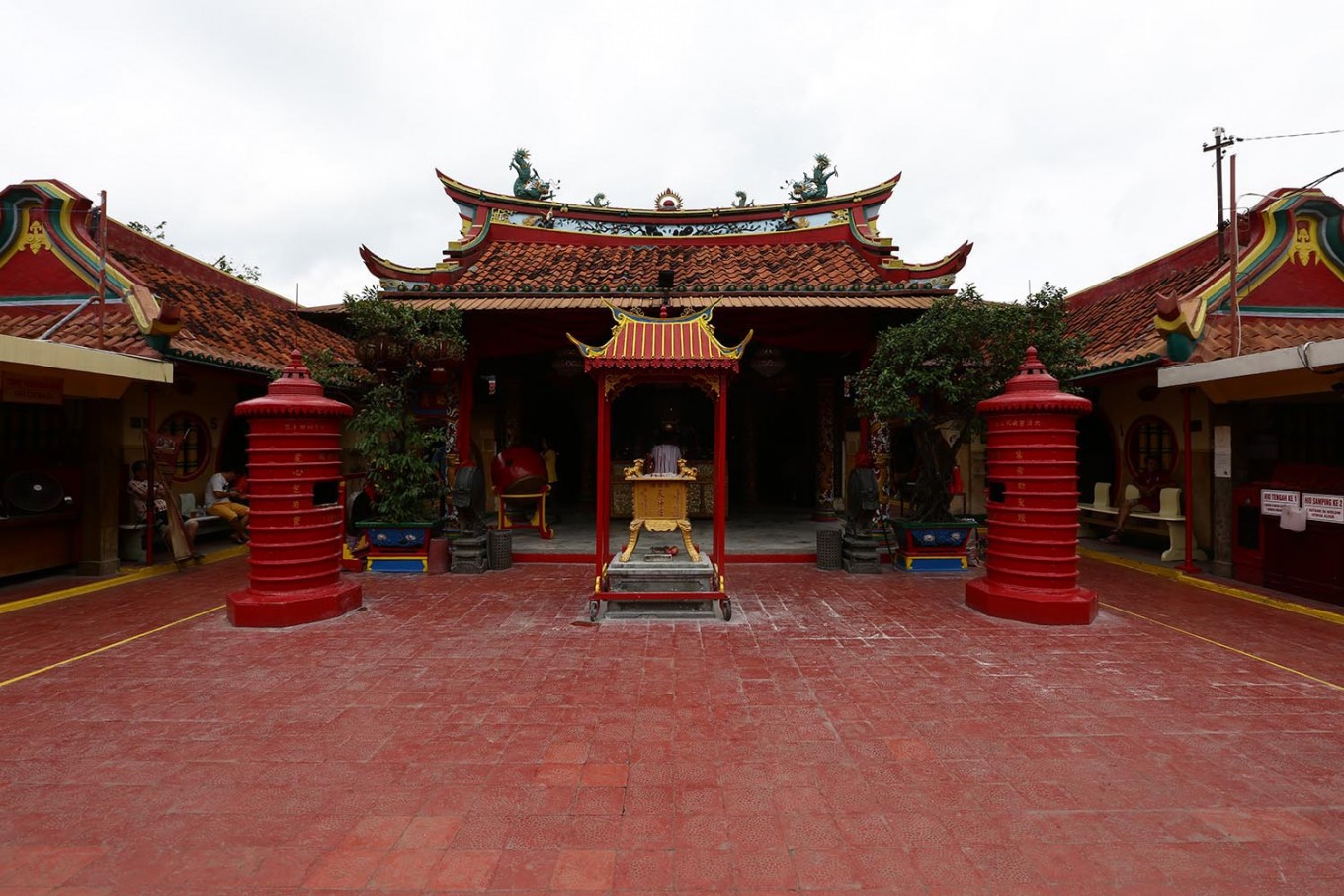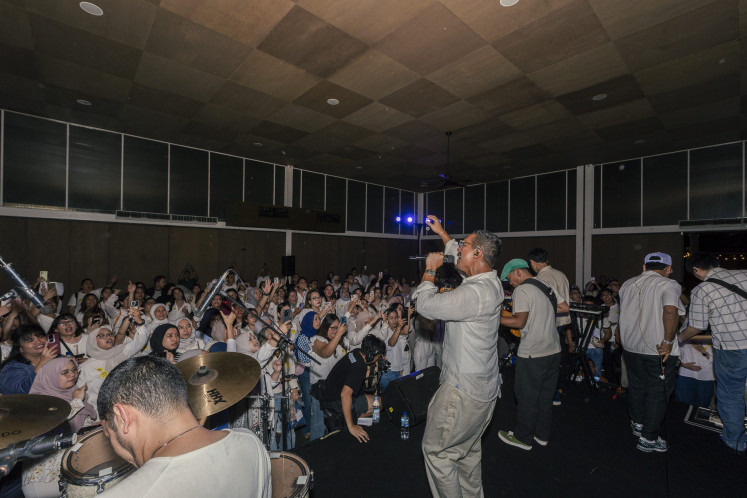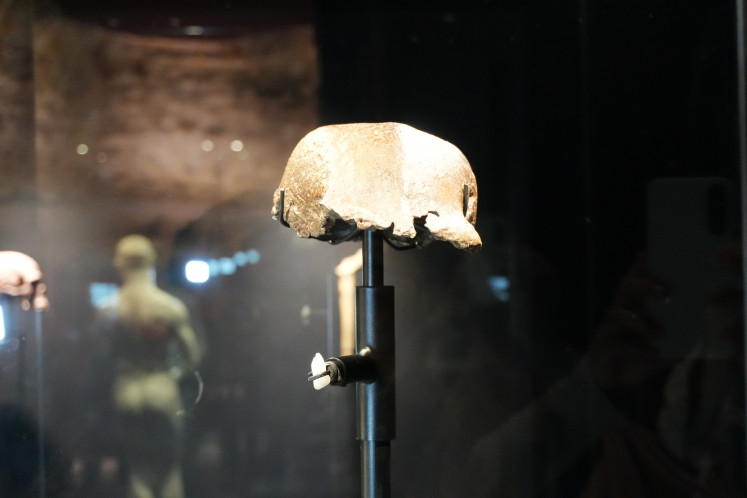Popular Reads
Top Results
Can't find what you're looking for?
View all search resultsPopular Reads
Top Results
Can't find what you're looking for?
View all search resultsTwo well-preserved traditions of Tangerang’s Benteng Chinese
Change text size
Gift Premium Articles
to Anyone
S
ituated a stone’s throw away from Jakarta, Tangerang city in Banten is believed to be the site of the first ethnic-Chinese settlements in Indonesia.
These Chinese people are said to have first arrived in the area in the 15th century. Led by a man named Chen Chi Lung, they then settled on the banks of the Cisadane River.
These settlers became known as Benteng Chinese, meaning the Chinese of the fort, as there was a Dutch fort in the area.
The Benteng Chinese community has assimilated with the locals, forming unique traditions.
In the spirit of Chinese New Year, here are two traditions that are still preserved by the community.
Peh Cun
Peh Cun or Pek Cun is a traditional Chinese annual festival celebrated on the 5th day of the 5th lunar month.
In Tangerang, the festival is organized by Boen Tek Bio Temple.
Located in Cisadane River, Peh Cun comprises various activities, including dragon boat racing, eating bak cang (rice with pork filling wrapped in leaves) and releasing ducks.
Read also: Confucianism followers partake in cleaning ritual ahead of Chinese New Year
Robi, a guide at the Benteng Heritage Museum told The Jakarta Post that duck releasing event only happened in Tangerang. Each duck has a number attached to its neck that can be exchanged for presents, so people usually scramble to catch the ducks.
Another activity that takes place during Peh Cun, as well as the dragon boat festival in June, is egg balancing. It is believed that between 11 a.m. and 1 p.m. on the day of Peh Cun, the gravitational force is at its strongest due to the Earth’s position in the solar system, making it possible to make raw eggs stand on end.
Gotong Toapekong
Gotong Toapekong (carrying toapekong) is celebrated once every 12 years, during the year of the dragon.
The next parade is slated to run in 2024 and will be held in the eighth month of the Chinese lunar calendar.
Oey Tjin Eng, a former employee at Boen Tek Bio Temple, told Tempo that the parade was meant to cleanse the earth of evil spirits, allowing people to have a peaceful, safe and prosperous life.
The parade was also meant to commemorate the temple’s renovation, which took place in 1844. Because of the renovation, some of the god statues had to be relocated to Boen San Bio Temple in Pasar Baru, Tangerang.
After the renovation was completed, the statues, namely those of Hok Tek Ceng Sien, Ka Lam Ya, Kwan Seng Tee Ku and Kwan Im Huo Cuow, were moved back to Boen San Bio Toapekong. The process of moving the statues to Boen Tek Bion became the Gotong Toapekong ritual. (mut)











